Faculty News & Notes
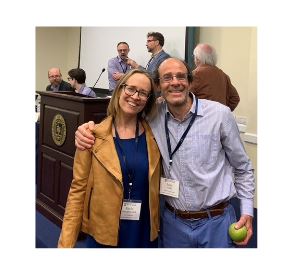
Emily Baragwanath
Associate Professor
Highlights of the past year for Emily Baragwanath include the panel on Xenophon and Genre, Genres in Xenophon she organized together with Melina Tamiolaki (University of Crete see photo) for the Celtic Classics Conference in Lyon, whose speakers included UNC alum, David M. Johnson, and a talk at the international Essence of History Research Seminar Series organized by Aaron Turner (Royal Holloway).
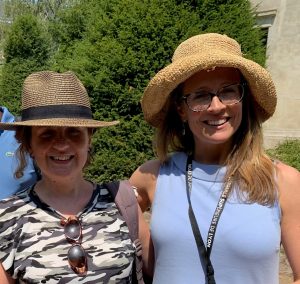

Highlights of the past year for Emily Baragwanath include the panel on Xenophon and Genre, Genres in Xenophon she organized together with Melina Tamiolaki for the Celtic Classics Conference in Lyon, whose speakers included UNC alum, David M. Johnson, and a talk at the international Essence of History Research Seminar Series organized by Aaron Turner (Royal Holloway). In Fall 2022 she addressed ‘Creolizing the Greeks through non-Greek Presences and Perspectives in historiography’ at Christopher Moore and Eduardo Menieta’s conference on Creolizing the Greeks at Penn State. Spring 2023 took Emily first to D.C. for a Dumbarton Oaks Byzantine Studies Symposium on Ancient Histories and History Writing in New Rome, organized by Leonora Neville (U. Wisconsin) and Jeff Beneker (U. Madison), where the sparkling papers were beautifully set off against the glorious gardens. Emily talked about the classicizing historiography of the fascinating Byzantine ‘New Herodotus’ Laonikos Chalkokondyles. She next travelled to Rome for the conference on Rhetoric & Historiography: New Perspectives she co-organized together with Luca Grillo (our former UNC colleague, now at Notre Dame), Andrew Feldherr (Princeton), and Christopher Krebs (Stanford). The exciting program culminated with a terrific paper on historiography and virtual reality by our new colleague George Baroud (formerly Emerson College). The conference bounced off A.J. Woodman’s influential study Rhetoric in Classical Historiography, and happily Tony was able to come as well. Much of Emily’s summer was spent evaluating abstracts for her third and final year on the SCS Program Committee: it was a whole lot of hard work, but also a great privilege to see just how painstakingly the sausage that is the SCS annual conference gets made. Publications that have recently seen the light of day include the Oxford World Classics edition of Xenophon’s Estate Management and Symposium (for which Emily wrote Introduction and Notes) and her essays ‘Aeschylus and History’ for J. Bromberg and P. Burian’s A Companion to Aeschylus (Wiley and Sons) and ‘A Universalist Moral Compass: Depicting Greeks and Foreigners through rhetoric in Anabasis 5 and 6’, for T. Rood and M. Tamiolaki Xenophon’s Anabasis and its Reception (De Gruyter).
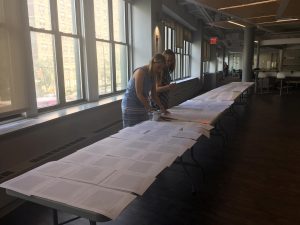 |
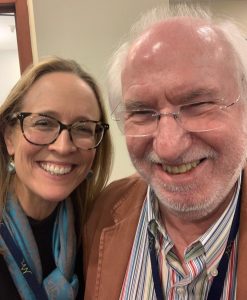 |
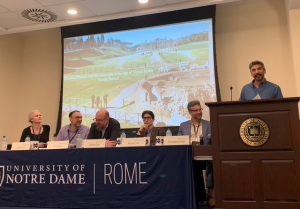 |

Janet Downie
Associate Professor
A year of research leave in 2022-23 has provided a much-needed post-COVID re-set.
A year of research leave in 2022-23 has provided a much-needed post-COVID re-set. I spent much of the year in Greece, using the library of the American School of Classical Studies in Athens as a base for research and writing, and making time for excursions around Attica, Evia, Boeotia, and the Peloponnese; January through April, I was back in Chapel Hill with a faculty fellowship at the Institute for the Arts and Humanities. During this break from teaching and administrative duties I’ve been able to complete several contributions for edited volumes – on women in the ancient novel (Longus), memory and emotion (Philostratus), magic, religion, and materiality (Xenophon of Ephesus), terraqueous landscapes (Aelius Aristides), and divine interventions in human bodies and landscapes (Aristides, again) – all now at different stages in the editorial process. I have also made progress with two ongoing research projects: a monograph – Spaces of Hellenism: The View from Roman Asia Minor – on the representation and theorization of space in geographical, rhetorical and fictional texts from the Roman Imperial period; and a related volume of essays, Greek Literary Topographies in the Roman Imperial World, which I’m coediting with my Penn State colleague Anna Peterson. While in Europe, I presented papers at the International Conference on the Ancient Novel (ICAN); at the FICTIO workshop held by the “Novel Echoes” European Research Council Project at the University of Ghent in Belgium; and in the Department of Philology at the University of Patras in Greece. Back in the US, we held our fifth meeting of The Second Sophistic Colloquium in San Antonio, Texas in April. Another ongoing collaboration this year has been the Carolina Seminar on “Cartography, Chorography, and Literary Landscapes” that Tim Shea and I co-convene with UNC colleagues in Geography and Romance Studies. Last year we collaborated on an article for The Routledge Handbook of Cartographic Humanities; this year we look forward to new projects, new members, and to celebrating the opening of UNC’s Spatial Antiquities Lab. As the summer winds down, I am busy planning new courses for 2023-24: an advanced Greek course on Dio Chrysostom’s Euboean Oration, a new first year seminar on ancient medicine, and a graduate seminar on Pausanias.

Al Duncan
Assistant Professor
This year I submitted the manuscript for my first book, Ugly Productions: The Material Aesthetics of Greek Drama, to the University of Michigan Press.
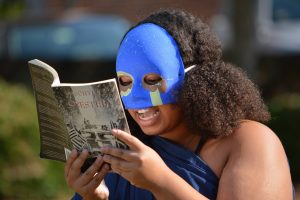
This year I submitted the manuscript for my first book, Ugly Productions: The Material Aesthetics of Greek Drama, to the University of Michigan Press. I am very grateful for the support of colleagues and students along my winding intellectual journey. I am very eager to turn toward other, ongoing projects focused on the materiality, performance, and reception of ancient theater. I have two cognitively-inflected chapters coming out in 2023: the first, “Visualising the Stage,” appeared in March in the Blackwell Companion to Aeschylus, edited by Jacques Bromberg and Peter Burian; the second, “Seeing Together: Joint Attention in Attic Tragedy,” is set to appear in Minds on Stage, edited by Felix Budelmann and Ineke Sluiter, published by Oxford University Press, this September. In the classroom I continue to refine my first-year seminar, “Greek Drama from Page to Stage,” and to grow interest in “Athletics in the Greek and Roman Worlds,” a lecture course that now regularly enrolls over 170 undergraduates. In Fall 2021 I debuted a new graduate seminar on “Politics and Performance,” and recently returned to teaching the graduate fifth-century literature survey course this Spring 2023. Setting special topics exams on “phenomenology and performance” and “drama outside fifth-century Athens” was a learning experience for me and the examinees. I also learned much from overseeing two senior Honors theses last year, which looked at the tragic Tiresias as a transgender figure and at Lysistrata as a paradigm for collective action across time. I am proud of my students’ many accomplishments, in particular Nick Bolig receiving the Philip Lockhart Fellowship to join the Regular Program of the American School of Classical Studies at Athens, which will support him as he embarks upon his dissertation research. Last but not least, UNC Chapel Hill’s chapter of Eta Sigma Phi, for which I serve as faculty advisor, had a brilliant renaissance this year under the leadership of a team of remarkably dynamic and dedicated students.
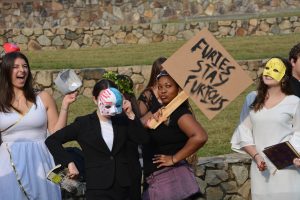 |
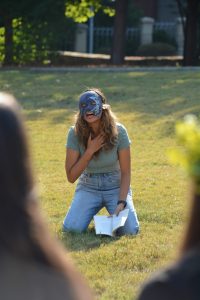 |
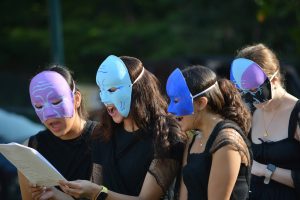 |
Beyond Murphey Hall, I have continued to partner with Carolina Public Humanities, offering a public lecture on animals in Aesop and Aristophanes at Wayne Community College in Goldsboro, NC, in spring 2022 and leading a Great Books study group on the Oresteia at Flyleaf Books the next fall. I found myself back in Flyleaf this spring to talk about “Stoic Tragedy and the Sources of Human Ethics,” part of a series of events associated with a Society for Classical Studies’ Ancient World, Modern Communities outreach grant, on with I collaborated with two indefatigable colleagues from the Philosophy department, Michael Vazquez and Aurora Yu. With Suzanne Lye as co-chair, I enjoyed managing the Visiting Lectures Committee this year, and we look forward to welcoming an exciting and accomplished line-up of speakers during the 2023–2024 season. Also looking ahead to the next academic year, I am particularly excited to welcome George Baroud to our department and Chapel Hill.
Despite some tragic setbacks this year, my family is finding ways to carry on and move forward. Lauren’s first book (on the history of the Nazaretha church in southern Africa) comes out this fall, and our children (Alex, 8, and Dash, 4) are growing like weeds. Both boys are devotees of Rick Riordan’s Percy Jackson and the Olympians series. The Classics have a bright future in the Jarvis-Duncan household!

Jennifer Gates-Foster
Associate Professor
Gates-Foster’s notes coming soon!
Work in progress.

Sharon James
Professor
The last two years have been as complicated and hectic here as anywhere else, but like everyone else I’ve been forging ahead as best I could.

The last two years have been as complicated and hectic here as anywhere else, but like everyone else I’ve been forging ahead as best I could.
Of special mention: I was able to bring to press at last a very special volume of essays on Propertius, in honor of my late friend Barbara Flaschenriem, a dear pal from graduate school. Two of her book chapters on Propertius are published there posthumously, and I contributed one of my own (“Blandi praecepta Properti: What Propertius Teaches”), along with essays by Andrew Feldherr, Ellen Greene, Alison Keith, and Lowell Bowditch. It is an elegant volume, and we all found the project especially meaningful.
In the last two years, four dissertation students have also forged ahead, and I count their work among my proudest accomplishments, as the advising process for everyone has been much complicated by pandemic conditions. Two dissertations were completed in summer 2021—Hannah Sorscher’s study of unconventional families in Roman comedy and Kelly McArdle’s study of jokes about torture of the enslaved in Plautine comedy. Two more have been completed this year, both defended in June—India Watkins Nattermann’s project on the changed meanings of male bodies in Julio-Claudian literature and Sarah Eisenlohr’s study of female trauma in Ovidian poetry. All four projects were advised over Zoom, as Hannah was in Tübingen while she finished up and India moved to Germany (then the Netherlands) with her family. Kelly and Sarah were local, but we still had to meet by Zoom rather than in the office—Sarah is teaching school Latin and can’t make it into Murphey for in-person meetings. They’ve all succeeded in writing impressive and exciting dissertations, even under difficult and demanding circumstances. It has been my pleasure to supervise these terrific projects.
More personally, I’m happy to say that the newest resident of our house, a golden retriever rescued from a puppy mill, has adjusted very nicely to living with us and has come to trust us. Overall, she remains shy and skittish, but has started to communicate her interests and preferences. It’s sort of like living with a ghost dog, but she is extremely sweet, and we feel fortunate to be able to help her have a happy and peaceful life after the negligence of her first six years. This photo shows her up on a sofa for the first time in her life. You can see how amazing she found it. Except (of course) when necessary, she did not leave that sofa—soft, comfortable, elevated!—for a solid two months. It’s still her home base.
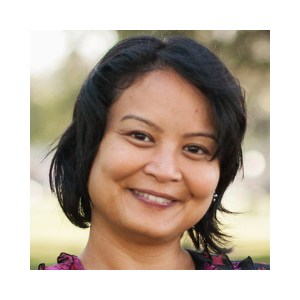
Suzanne Lye
Assistant Professor
This past year, I finished writing my first book, Life / Afterlife: Revolution and Reflection in the Ancient Greek Underworld from Homer to Lucian, which is under contract at Oxford University Press.
This past year, I finished writing my first book, Life / Afterlife: Revolution and Reflection in the Ancient Greek Underworld from Homer to Lucian, which is under contract at Oxford University Press. Last Spring, I gave talks at Columbia, University of Toronto, and University of Washington. Over the summer, I did a research trip to Paris and Greece, spending most of my time at museums and archaeological sites in Athens and Crete. For the upcoming Fall 2023 term, I will teach the undergraduate course Sex & Gender in Antiquity, which is participating in the campus-wide IAAR-SLATE initiative, as well as a graduate course on the Underworld and Afterlife in Antiquity. Currently, I am a 2023 Mellon Emerging Faculty Leaders Fellow and a 2023-24 Faculty Fellow at the Institute of Arts and Humanities. With these fellowships, I will begin work on my second book, which is on women’s anger and magic in the ancient world. I also serve as the Co-Chair of the Women’s Classical Caucus and on the Board of Directors for both the Society for Classical Studies and the Asian & Asian American Classical Caucus.
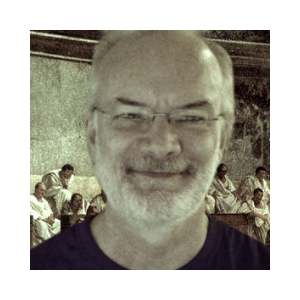
Jim O’Hara
George L. Paddison Professor of Latin
Since the last Tabulae I have published one article and submitted the final versions of three forthcoming papers. The published work is “Triumphati magis quam victi? Ways to Respond to Lying and Exaggeration in Aeneid 8 and on the Shield of Aeneas,” MD 89.2 (2022) 67-111, which both flows from my work on my Aeneid 8 commentary and supplements my 1990 book on prophecy in the Aeneid.
Since the last Tabulae I have published one article and submitted the final versions of three forthcoming papers. The published work is “Triumphati magis quam victi? Ways to Respond to Lying and Exaggeration in Aeneid 8 and on the Shield of Aeneas,” MD 89.2 (2022) 67-111, which both flows from my work on my Aeneid 8 commentary and supplements my 1990 book on prophecy in the Aeneid. The forthcoming papers are on Lucretius, Horace’s Ars Poetica, and the process of writing my two Aeneid commentaries. My work continues, slowly, on my monograph Teaching, Pretending to Teach, and the Authority of the Speaker in Roman Didactic and Satire; I taught my related graduate seminar on “Satire and Didactic” last year, but completing the book will probably wait until retirement (not too far off!) frees up more time. The Focus-Hackett commentary on Aeneid 7-12 by a six-scholar team that I am co-editing with Randall Ganiban is heading, we hope, towards completion: I’ve said this before, but we expect to have drafts of all six commentaries before July 1. I gave talks related to the Aeneid 8 paper by Zoom to a class at Xavier University taught by our PhD Katie DeBoer, and IRL at the 2023 meeting of the North Carolina Classical Association. I was the respondent to a Vergilian Society panel on “Vergil and Authoritarianism,” at the 2022 SCS zoom meeting, and chaired panel sessions at CAMWS and at the 2022 Vergilian Society Symposium on Dido at Cuma; I was happy to get back to Italy but wound up staying there nine days more than I had planned for reasons you can probably guess. I have spoken at or via Zoom to three high school classes about Vergil: the Trinity School of Durham and Chapel Hill where my recent PhD Andrew Ficklin teaches, and Thales Academy in Rolesville NC, both about Aeneid 6, and the Chatham School of Science and Engineering at the Early College in Siler City NC, which because of its science emphasis asked me to speak about “Ancient Astronomy and the Fall of Troy in Vergil’s Aeneid 2.” I’m now on a list managed by the North Carolina Classical Association of NC college faculty willing to speak to high schools. This past term I taught two of my more fun undergraduate Latin courses. For Cicero’s Pro Caelio, students first wrote a paper comparing Cicero’s theory of the murder of Dio with that of Stephen Saylor’s detective novel The Venus Throw, and then wrote and delivered a “Speech in Defense of a Probably Guilty Student/Friend/Sibling.” In Juvenal students wrote and delivered a satire of their own home town, like Juvenal 3. Last summer I was the CAMWS delegate to the meeting of the Fédération Internationale des Associations d’ Études Classiques (FIEC, a.k.a. the Federation of the Societies of Classical Studies), which was “in” Mexico City but alas was completely online. In the Department I’ve been Director of the Post-Baccalaureate Program, Placement Director, Diversity Liaison, overseer of the webpage for one year, and on graduate exam and personnel review committees. Some of my recent travel has not been scholarly but to visit my daughter Marika in Los Angeles, and I’ll be back for a visit this summer. I have enjoyed having lunch a couple times recently with our emeritus colleague Jerzy Linderski, whom I replaced as Paddison Professor of Latin in 2001, and who is as vibrant and fascinating and funny as ever.
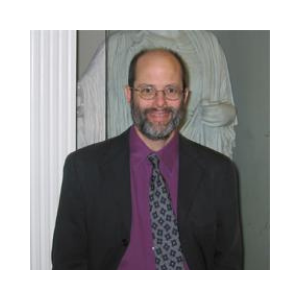
James B. Rives
Kenan Eminent Professor of Classics
I had the great good fortune to be on research leave for the whole of the 2021-22 academic year. I was in fact doubly fortunate, in that I was able not only to devote the entire year to research, but also to avoid the transition from remote instruction back to in-person teaching, which I gather from colleagues and students proved to be far from smooth sailing. By the time I started teaching again this past fall, the transition was already largely complete.
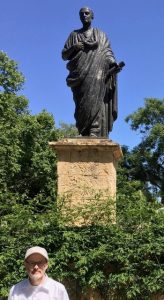
I had the great good fortune to be on research leave for the whole of the 2021-22 academic year. I was in fact doubly fortunate, in that I was able not only to devote the entire year to research, but also to avoid the transition from remote instruction back to in-person teaching, which I gather from colleagues and students proved to be far from smooth sailing. By the time I started teaching again this past fall, the transition was already largely complete. I was certainly glad of that, since the return to classroom teaching after two and a half years away (pandemic + leave) was challenging enough on its own. At least I was on familiar ground: one of my courses in the fall was my large lecture course on myth, which I’ve taught every year for ten or more years now. The other course was less familiar, but very welcome: our third-year Latin course on Vergil’s Aeneid. As I remarked at the time, it was a bit absurd that in a department that boasts Jim O’Hara and Sharon James I should be the one teaching the Aeneid, but I enjoyed the chance to luxuriate in that wonderful text, all the more so because I had a small but very lively and engaged group of students. The same was true in the spring semester, when I was lucky enough to have a course load that could hardly beat: our Junior Seminar, which I did on the topic of animal sacrifice in the Graeco-Roman world, and our fourth-semester Greek course on New Testament Greek, in which we read the Gospel of Mark. It was almost enough to make me wish that the semester would just keep going. Almost, but not quite!
Travels have been few over the past two years, largely because I have been focusing my energies elsewhere. I did take part in a conference in Seville, Spain, in May 2022, on ‘Empire in Words, Empire in Rituals: Words and Rituals that Shaped the Roman Empire’. It was the first time I’d participated in an in-person conference since before the pandemic, and it was a good experience: excellent hosts, interesting papers that actually cohered around the theme, and much stimulating interaction. My husband John went with me, and we added on several days to be tourists, since neither of us had ever been to southern Spain before; here I am in front of a statue of Seneca in his hometown of Córdoba.
My big news is on the research front. My task for my research leave was to bring to completion my project on animal sacrifice in the Roman empire, which has been the focus of my research for some fifteen years now. I realized that it was pretty much a now-or-never situation: if I didn’t get it done during my leave, or at least very close to done, there was a very good chance that I would never get it done at all. I’m glad to report that I did in fact get it done! All the research and mulling I had done over the previous years, as meandering as it often seemed at the time, meant that I had a clear conception of the book’s parameters: what it would include and, more importantly, what it wouldn’t include. I had also been careful during the previous year or two to decline most invitations and requests that came my way, so that I could devote myself full-time to the book. Somewhat more surprisingly, I ended up benefitting from pandemic restrictions. Because the library was effectively inaccessible for much of the time, I had to make do with what was in my personal library or available online, and was thus largely able to avoid the constant temptation to put my writing on hold while I went to the library to consult just a few more books. As a result, by the time my leave came to an end, I had a polished draft of the entire manuscript. There were still quite a few loose ends (in some cases I really did have to go to the library to consult a few more books) and a good bit of copy-editing, but I was able to make enough time over the course of the academic year to get all that done. Here I must thank my two research assistants, Emily Lime, who did all the work of tracking down the images I needed and arranging for the necessary permissions, and Matt Sherry, who undertook the laborious work of verifying all the primary references. (After he finished, he commented “There were a lot of references.”) Thanks to their assistance, I was able to send the full manuscript to my publisher, Oxford University Press, at the end of March 2023. The title? Oh, it’s a zippy one: Animal Sacrifice in the Roman Empire (31 BCE-395 CE): Power, Communication, and Cultural Transformation. Stay tuned: I fully expect that next year I’ll be able to report on my negotiations over the film rights!
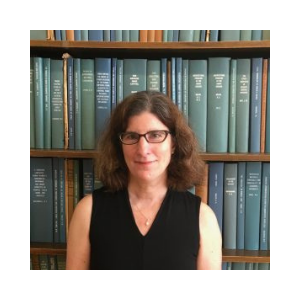
Patricia Rosenmeyer
George L. Paddison Professor of Classics
The past two years (2021-23) have been filled with Zoom events. If I had been able to attend even some of these presentations in person, I would have accumulated a good number of frequent flier miles.
The past two years (2021-23) have been filled with Zoom events. If I had been able to attend even some of these presentations in person, I would have accumulated a good number of frequent flier miles. I co-taught an Honors course with a colleague at the University of Sao Paulo after receiving a Collaborative Online International Learning Curriculum Development Award from the UNC Vice Provost for Global Affairs. I spoke on the Memnon colossus inscriptions in Vienna and Leiden and on aspects of epistolography at the Society for Biblical Studies annual meeting in San Antonio, at a colloquium on “Authorial Fictions and Attributions”, and at a Mahindra Center Seminar at Harvard. I gave a variety of lectures on Sappho and the 2nd-century CE poet Julia Balbilla at the Society for Classical Studies annual meeting in Chicago, at a panel on “Greek Poetry in the Roman Empire”, at a session of the International Society for the Study of Lyric, and at a workshop in Sao Paulo. Appropriately, I also served as panel chair for a workshop at Tübingen University on “Teaching Classics in a Pandemic Time”.
One of the highlights of the past two years was co-organizing an international conference with a colleague at Haifa University on “Modern Jewish Receptions of Classical Antiquity”. After several delays because of travel bans, we held the conference online in May 2021, and now have a contract with Oxford in their “Classical Presences” series for the proceedings, which will include chapters on 20th-century Hebrew and Arabic receptions of Greek and Latin texts. Other recent publications include a chapter on epistolary devices in Latin literature for a volume on Ancient Love Letters (de Gruyter 2023), an article on the lyric poet Praxilla in EuGeStA (2022), a piece on the anacreontics in the Blackwell Companion to Greek Lyric (2022), and a book review for the Journal of Hellenic Studies (2021).
After postponement because of the pandemic, I took up my Tarrant Fellowship in the summer of 2022 at the Institute for Classical Studies in London, where I worked in the library, as well as at the National Archives in Kew, gathering documents about German classical scholars who sought refuge in the UK shortly before WW2. I presented the results of my research at the Institute in London and at Leiden University.
My newest adventure this past year has been taking on the directorship of the Carolina Center for Jewish Studies as the Levin Distinguished Term Professor and dividing that job equally with my Paddison professorship in Classics. We celebrated the 20th anniversary of the founding of the Center this year, and I have enjoyed meeting colleagues in affiliated departments at UNC, working with donors, and exploring a leadership role on campus. The best parts are giving out grants to students and faculty for research and travel, hiring new faculty for endowed positions at the Center, and learning from our visiting speakers about a wealth of topics in Jewish Studies. I look forward to continuing to balance my duties in Classics and Jewish Studies in the coming years.
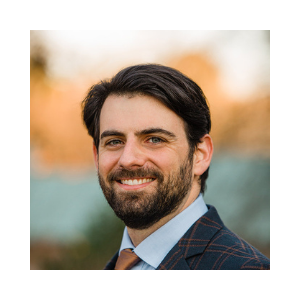
Timothy Shea
Assistant Professor
Shea’s notes coming soon!
Work in progress.
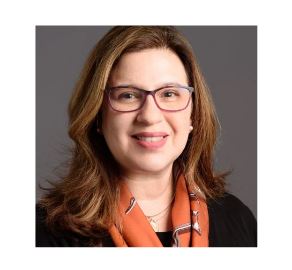
Hérica Valladares
Assistant Professor
Valladares’ notes coming soon!
Work in progress.